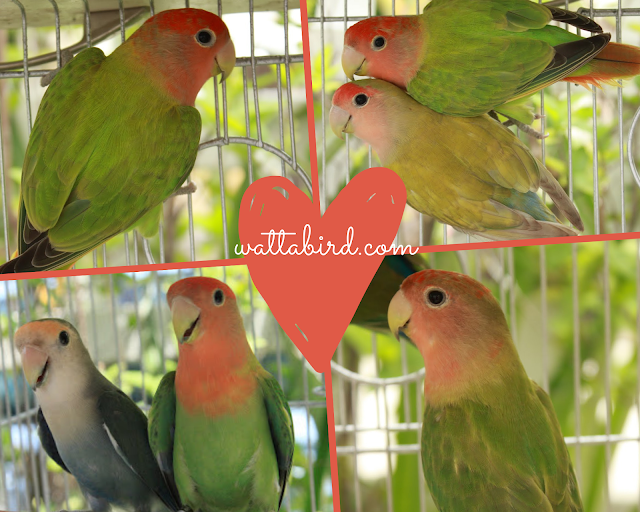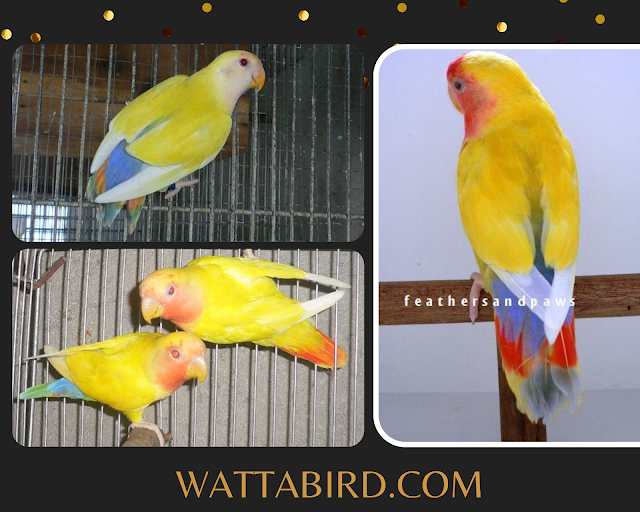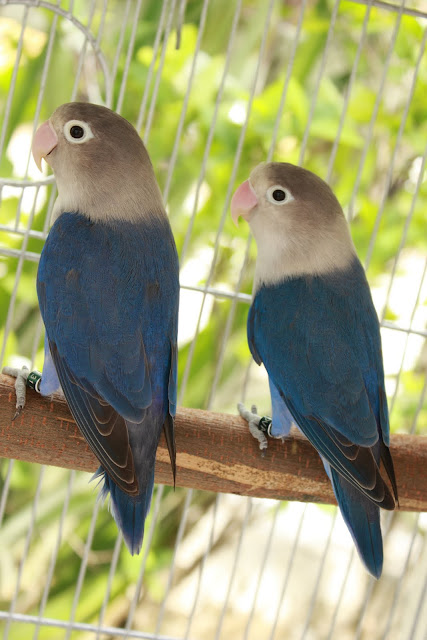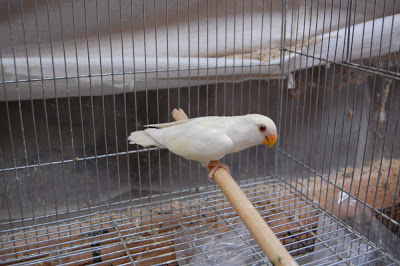WattaBird! Unlocking the Palette: Breeding African Lovebirds for Mesmerizing Mutations!

WattaBird! Unlocking the Palette: Breeding African Lovebirds for Mesmerizing Mutations! Breeding African Lovebirds to create new mutations can be an exciting and rewarding endeavor for aviculturists. Here are some potential breeding combinations to produce new African Lovebird mutations: Lutino x Lutino: Breeding two lutino African Lovebirds can result in offspring with a higher chance of being lutino, which is a beautiful all-yellow mutation. Lutino x Pied: Crossing a lutino with a pied Lovebird can produce visually striking pied lutinos with patches of yellow and other colors. Turquoise x Blue: Pairing a turquoise Lovebird with a blue one can produce visually appealing turquoise blues, which have a combination of turquoise and blue feathers. Violet x Blue: Breeding a violet Lovebird with a blue Lovebird can result in visually striking violet blues, combining the violet and blue colorations. Opaline x Normal: Crossing an opaline Lovebird with a normal one can produce opaline offspring...








Comments
Post a Comment